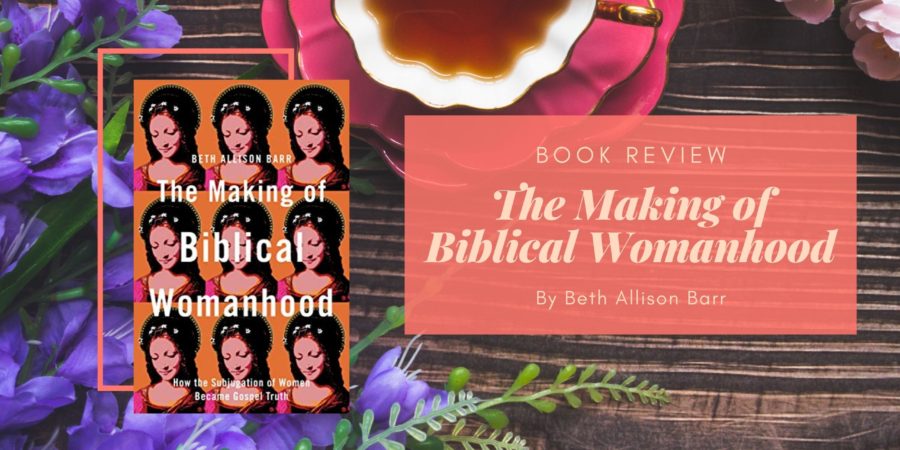“Instead of looking different in how we treated women, Christians looked just like everyone else.”
With the news of how the Southern Baptist Convention failed victims of abuse in order to protect male leaders in the Church coming so soon after news of how John MacArthur shamed and excommunicated a woman who refused to take back her child-abusing husband, the abuses committed by Ravi Zacharias, and following years of dodgy advice such as the one about how women shouldn’t be police officers because that might “offend a man’s good, God-given sense of responsibility and leadership, and thus controvert God’s created order“, it is obvious that there are serious problems within the evangelical Church.
I am fortunate to live outside of America and in a Church where complementarianism isn’t preached, but so many of the internet resources that my friends use come from America, specifically from American complementarians and neo-Calvinists, and honestly, I worry about the influence that this has. And that is why I was very interested in The Making of Biblical Womanhood – because it sounded like something I could recommend to my friends to spark a discussion.
Beth Allison Barr is a historian who specialises in medieval history, women’s history, and Church history. This background informs The Making of Biblical Womanhood, which uses Church history and medieval history to show how patriarchy has existed and how we got to this current state, where women’s worth is viewed in terms of motherhood and wifehood and where women are expected to submit to men. The chapters in the book cover:
- The development of patriarchy and how that came to influence the Church
- A compelling look at how place the Pauline epistles in historical (and theological) context can lead to an argument against male headship
- What the medieval world really thought of women preachers
- The cost of the reformation to protestant women
- The complexities involved in translating the Bible: I’m fortunate to have always read the Bible in at least two, and then three languages so I always knew that Jesus didn’t ordain one specific English translation. I didn’t know that the ESV was written with so much male bias, though!
- How the cult of domesticity emerged and how that preached female subordination
- How the drive to ensure that patriarchy wins leads to heresies such as the revival of Arianism (the reason why we have the Nicene creed)
I really appreciated how Barr contextualises modern-day proponents of complementarianism by looking at the history of women in the Church and specifically, the effects of the Protestant Reformation. Reading this book reminded me of something that I heard at an Aldersgate SG (the annual keynote event of the Methodist Church in Singapore) speech a long time ago: a text, without a context, is just a pretext for what you want it to say. Barr has provided a compelling case of how knowing the context can help us to better understand the texts that are being misused in an effort to oppress a group of people. As she says in the second last chapter:
“The greatest trick the devil ever pulled was convincing Christians that oppression is godly.”
And this is not just an academic book. While most of the book is about history, Barr also gets personal as she shares how this teaching of female submission has hurt her and her family, in both her personal and professional life. I know there’s a famous review out there that tries to imply that either her account didn’t happen or if it did happen, that it means she is not objective enough to critique the patriarchy in the Church, but honestly that argument implies that victims of any kind of abuse can’t critique the systems that resulted in their abuse and that is just wrong.
Anyway, going back to the book, I think it’s an important one for Christians to read. I believe the overall argument is compelling and this is a much needed wakeup call for the Church to actually practice the teachings of Christ. We cannot allow scandal after scandal to keep happening, because every scandal represents a huge failure to protect the people who come to the Church looking for refuge.
P.s. If you’re interested in patriarchy and sexism in a more general, non-Christian way, I highly recommend:
- Freewomen, Patriarchal Authority, and the Accusation of Prostitution by Stephanie Lynn Budin for a look at what a freewoman is and how she’s often been defined as a prostitute in various times and cultures (my review)
- Invisible Women by Caroline Criado Perez for a look at how the modern way of viewing things through a “default male” lens harms women (my review)
- Barr talks a bit about patriarchy in the Roman world, if you’re interested in learning more about the household structure of the Romans, I really enjoyed this wondrium course called The Pagan World: Ancient Religions before Christianity. There is a pretty substantial section within the course focused on Rome.

Added to my TBR list!
Yessss! I really loved this book – so many good points raised!
I’m not religious myself but this sounds like a really interesting book and one that could be useful for many people
It is very interesting, and given the influence of America, I think very relevant to a lot of people!